5 Rumors That Say Aaron Hernandez May Have Been Murdered (And Didn't Commit Suicide)
Whoa.
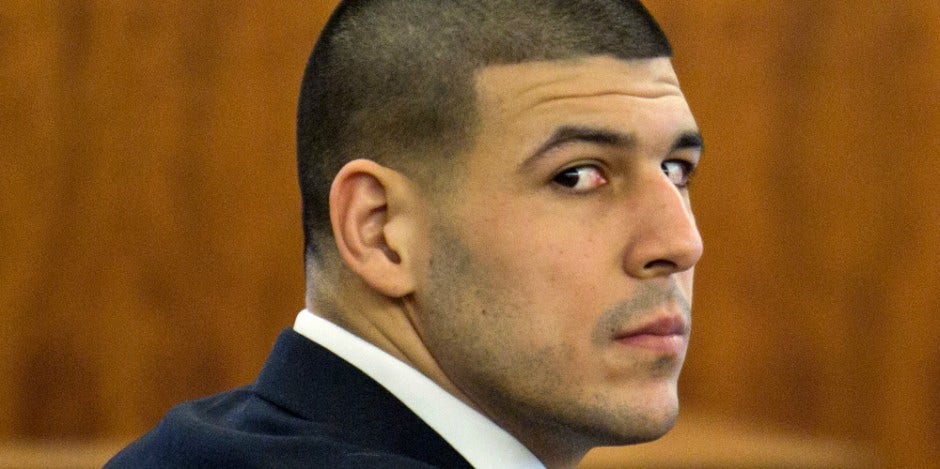 HuffingtonPost
HuffingtonPost Former New England Patriots player Aaron Hernandez, 27, was found hanged in his prison cell at approximately 3:05 a.m. in Souza-Baranowski Correctional Center where he was serving a life sentence for the murder of Odin Lloyd.
A representative from the facility released the following statement in response to his suicide:
"Mr. Hernandez hanged himself utilizing a bed sheet that he attached to his cell window ... Mr. Hernandez also attempted to block his door from the inside by jamming the door with various items ... Lifesaving techniques were attempted on Mr. Hernandez, and he was transported to UMass Leominster, where he was pronounced dead at 4:07 a.m."
Hernandez is survived by his 4-year-old daughter and fiancée, Shayanna Jenkins.
Odin Lloyd was a semi-professional football player who may have known too much about a 2012 double homicide that Hernandez was also involved in, but most recently was found not guilty of.
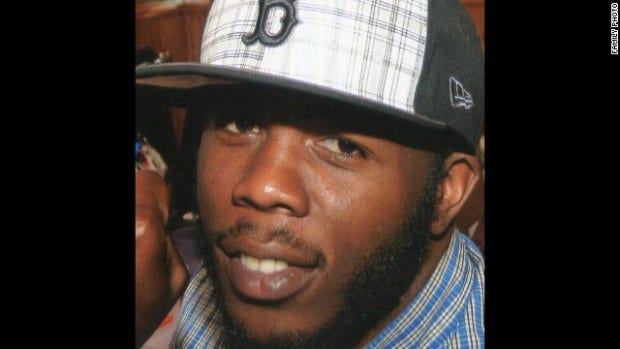
CNN (Odin Lloyd)
On June 17, 2013, Lloyd's body was found with multiple gunshot wounds only about a mile from Hernandez's home. The last text that was sent by Lloyd said, "With NFL."
Suspicions grew after Hernandez intentionally destroyed his home security system and hired a "clean up crew" for his home the same day Lloyd's body was found.
On June 26, 2013, Hernandez was taken into police custody and charged with first-degree murder.
On April 15, 2015, Hernandez was found guilty and sentenced to life in prison without the possibility of parole.
In the 2012 double homicide, Daniel Jorge Correia de Abreu, 29, and Safiro Teixeira Furtado, 28, were found killed by multiple gunshots.
Hernandez was indicted and charged with both murders, but on April 14, 2017, he was found not guilty in relation to those homicides.
Though officials are insisting that Hernandez died by suicide, attorney Jose Baez (famous for his not guilty verdict in the Casey Anthony trial) believes otherwise.
Here are 5 clues, rumors and theories that lead to the idea that Aaron Hernandez was murdered:
1. Attorney Jose Baez is opening an investigation into the death of Aaron Hernandez.
Attorney Jose Baez spoke with TMZ Sports last week after Hernandez was found not guilty in the 2012 double homicide case. Baez and Hernandez were working on an appeal for the Odin Lloyd murder and seemed optimistic about the future.
2. The Hernandez family doesn't believe he would kill himself.
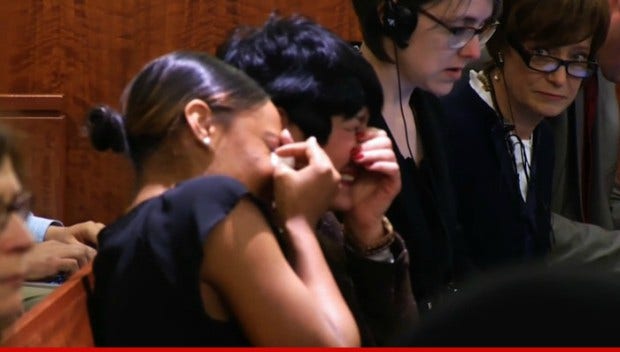
TMZ (Aaron Hernandez's mother and fiancée)
According to Jose Baez, the family is understandably devastated but do not believe that Aaron Hernandez was in the frame of mind to commit suicide.
In a statement, Baez said, "There were no conversations or correspondence from Aaron to his family or legal team that would have indicated anything like this was possible ... Aaron was looking forward to an opportunity for a second chance to prove his innocence."
Just last week, when Hernandez was acquitted of 2012 double homicides, he blew kisses to his 4-year-old daughter and seemed to be in a good place.
3. The prison facility said there were no indications Hernandez was thinking of suicide.
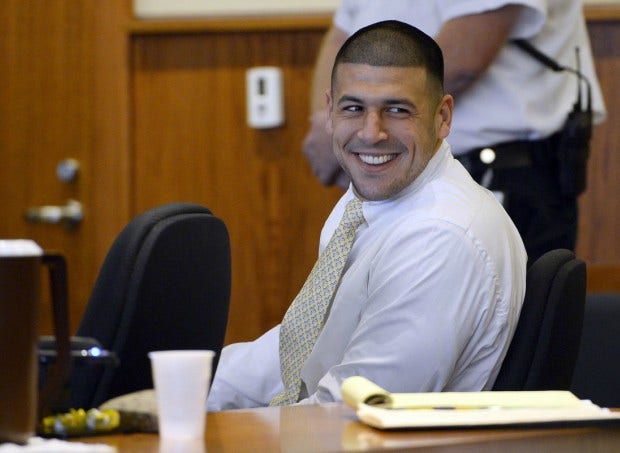
BostonHerald (Aaron Hernandez)
Correction Department Spokesman Christopher Fallon told the Associated Press that 'officials had no reason to believe Hernandez might take his life, and if they had had any such worries, he would have been transferred to a mental health unit.'
4. Hernandez's former agent doesn't believe he committed suicide.
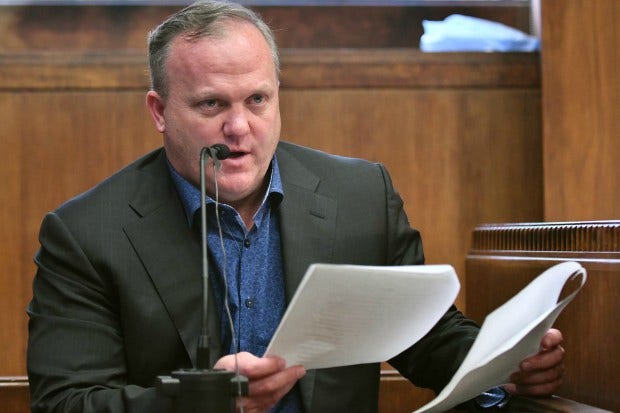
BostonGlobe (Former Hernandez agent Brian Murphy)
Brian Murphy spoke with ESPN and said there was absolutely no chance Hernandez took his own life.
“Chico was not a saint, but my family and I loved him, and he would never take his own life.”
5. Technically, Aaron Hernandez died an innocent man.
Under Massachussets law, the murder conviction is void because he died during his appeal.
Cheif Legal Counsel to the Massachussets Bar Association, Michael Healy told the Boston Globe that 'the principle reverts a case to its start if the convicted party dies before the appeals process has concluded.'

